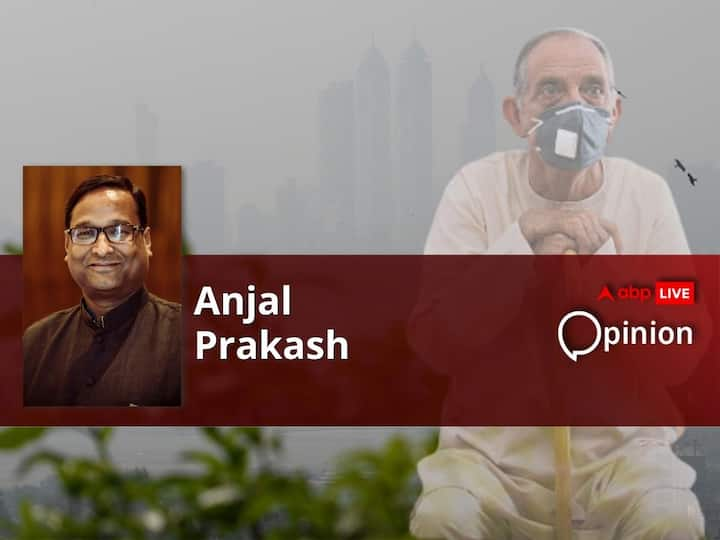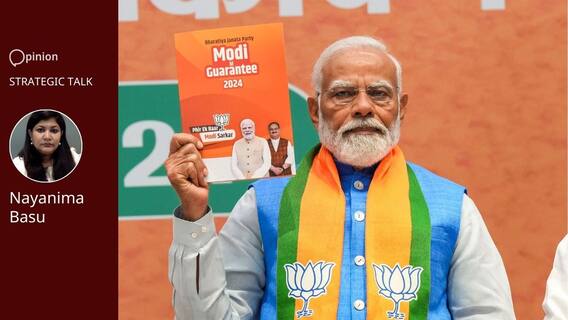
Why Elderly Population In India Is Vulnerable To Climate Change And How To Protect Them

Climate change has become a significant concern for people worldwide, with its effects being felt in various sectors and on different groups of people, including the elderly population. In India, the elderly population is particularly vulnerable to the impacts of climate change due to various reasons. In this piece, I explore the reasons behind this vulnerability and what kind of protection the elderly population requires in the context of climate change.
Climate Change: Reasons For Vulnerability Faced By Elderly People
The elderly population in India is vulnerable to climate change for several reasons.
1. Heat waves become more frequent and intense as temperatures rise, which can be particularly dangerous for older adults. They are more susceptible to heat-related illnesses such as heat exhaustion and heatstroke due to physiological changes associated with ageing, and a reduced ability to regulate body temperature and increased susceptibility to heat stress.
2. Climate change exacerbates air pollution in India, which can have adverse health effects on older adults, particularly those with preexisting respiratory or cardiovascular conditions. Air pollution can worsen respiratory problems and increase the risk of heart disease and stroke, common health issues for older adults.
3. Climate change can lead to decreased rainfall and water scarcity in many parts of India, making it difficult for older adults to access clean drinking water and maintain proper hygiene. This can lead to the spread of water-borne diseases, which can be particularly dangerous for older adults with weakened immune systems.
4. Climate change increases the frequency and intensity of extreme weather events such as floods, droughts, and cyclones. These events can be especially devastating for older adults with difficulty evacuating or coping with the aftermath. Limited mobility and access to transportation can contribute to their vulnerability.
5. Climate change can lead to decreased crop yields and food insecurity, which can significantly impact the elderly population in India, who may already be facing challenges accessing nutritious food. Malnutrition can exacerbate pre-existing health conditions, leading to increased susceptibility to diseases.
How To Protect Vulnerable Seniors from Climate Change Impacts
Senior citizens face unique challenges in climate change, as they are often more vulnerable due to limited mobility, chronic health conditions, and reduced access to resources. The protection they require varies by location but generally includes access to clean air, safe drinking water, reliable energy sources, and assistance during extreme weather events.
However, one of the main challenges in offering protection to seniors is a need for more understanding of their specific needs. Climate change policies and programmes may not adequately consider the vulnerabilities of older adults, leading to inadequate protection measures. Moreover, limited funding, inadequate infrastructure, and social isolation also create significant barriers to providing protection.
The physiological changes that occur with ageing make older adults more vulnerable to climate change impacts, such as the reduced ability to regulate body temperature and increased susceptibility to heat stress. Many older adults also have chronic health conditions that extreme weather events, such as respiratory problems and cardiovascular disease, can exacerbate. Furthermore, limited mobility and access to transportation can add to their vulnerability.
Protecting seniors from climate change impacts requires a comprehensive approach that addresses their unique needs. This includes increasing awareness of their vulnerabilities, providing targeted resources and assistance, improving infrastructure and transportation options, and ensuring that climate change policies and programmes are inclusive and account for the needs of older adults. By doing so, we can better protect our most vulnerable seniors and ensure they can live in a safe and healthy environment.
One of the main bottlenecks to offering protection to senior citizens is a need for more awareness and understanding of their specific needs. Policies and programs related to climate change adaptation and disaster preparedness may not adequately consider the unique vulnerabilities of older adults. In addition, limited funding, inadequate infrastructure, and social isolation can also present significant barriers to providing protection.
Policies Needed To Protect The Elderly
There is a need to develop policies and programmes that are sensitive to the specific needs of the elderly population. These policies should provide adequate resources for addressing the needs of elderly people in the context of climate change. This includes the development of infrastructure that is accessible to older adults, such as public transportation, and providing health services that cater to their unique needs.
The elderly population in India is particularly vulnerable to the effects of climate change. They require protection from the negative impacts of climate change, such as access to clean air, safe drinking water, reliable energy sources, and assistance during extreme weather events. Policies and programmes related to climate change adaptation and disaster preparedness must take into account the specific needs of the elderly population to provide adequate protection. This will require the development of infrastructure that is accessible to older adults, the provision of health services that cater to their unique needs, and the allocation of resources that address the specific vulnerabilities of the elderly population.
Dr Anjal Prakash is the Research Director at Bharti Institute of Public Policy, Indian School of Business.
[The opinions, beliefs, and views expressed by the various authors and forum participants on this website are personal and do not reflect the opinions, beliefs, and views of ABP Network Pvt. Ltd.]
 “ Reality Check On BJP’s Manifesto Promise Of Permanent UNSC Seat: Elon Musk Won’t Cast Vote, China Will
“ Reality Check On BJP’s Manifesto Promise Of Permanent UNSC Seat: Elon Musk Won’t Cast Vote, China Will

Trending News

and tablets

























